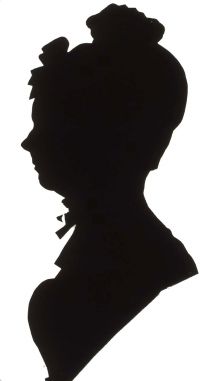
Whenever Thomas Jefferson was apart from his family -- such as when they were away from Monticello, or during the period when he served as president in Washington, D.C. -- he frequently wrote letters to them.
He started writing each grandchild as soon as he or she learned to read, and he expected letters in return. The letters to and from the grandchildren are filled with such things as updates on the family's health and activities; the latest news from the garden, such as when the strawberries or violets appeared; and even progress reports for a contest as to which of two grandchildren could learn to write the alphabet first. His letters also reveal a deep affection for the little girls and boys so far away from him -- his note to then-five-year-old Ellen Wayles Randolph reads, "I have given this letter 20. kisses which it will deliver to you: half for yourself, and the other half you must give to Anne [Ellen's older sister]."
"If You Don't Answer This Leter...."
 When letters were not as regular as he liked, Jefferson often scolded or teased his writing-partners, going so far, for example, as to send a "bill" for the four letters his granddaughter Ellen owed him. Along with the bill, he wrote the eight-year-old, "So stands the account for this year, my dear Ellen, between you and me. Unless it be soon paid off, I shall send the sheriff after you." On the other hand, his grandson Francis Wayles Eppes once threatened him, "This leter will make twice I have wrote to you and if you dont answer this leter I shant write to you any more.
When letters were not as regular as he liked, Jefferson often scolded or teased his writing-partners, going so far, for example, as to send a "bill" for the four letters his granddaughter Ellen owed him. Along with the bill, he wrote the eight-year-old, "So stands the account for this year, my dear Ellen, between you and me. Unless it be soon paid off, I shall send the sheriff after you." On the other hand, his grandson Francis Wayles Eppes once threatened him, "This leter will make twice I have wrote to you and if you dont answer this leter I shant write to you any more.
A Reading Riddle
With his letters, Jefferson frequently included items that he clipped from newspapers, such as poetry, stories, and riddles, which the grandchildren kept in scrapbooks.
The following is a riddle that Jefferson mailed to his granddaughter Cornelia Jefferson Randolph when she was eight years old. (Cornelia's silhouette, made when she was a young woman, is shown at right.) The point of the riddle, wrote Jefferson, was to figure out "how to read these lines so as to make them true."
I've seen the sea all in a blaze of fire
I've seen a house high as the moon and higher
I've seen the sun at twelve oclock at night
I've seen the man who saw this wondrous sight.
"All this is true," he added, "whatever you may think of it at first reading."
A Hint and a Solution
Hint: Jefferson suggested to Cornelia that he selected these lines because she was just learning to write: "they will be a good lesson to convince you of the importance of minding your stops in writing."
Solution: The lines are missing periods ("stops"). Try reading it this way: "I've seen the sea. All in a blaze of fire, I've seen a house. High as the moon and higher, I've seen the sun. At twelve oclock at night I've seen the man who saw this wondrous sight."
The correspondence of Jefferson and his family is gathered in The Family Letters of Thomas Jefferson, edited by Edwin M. Betts and James A. Bear, Jr.